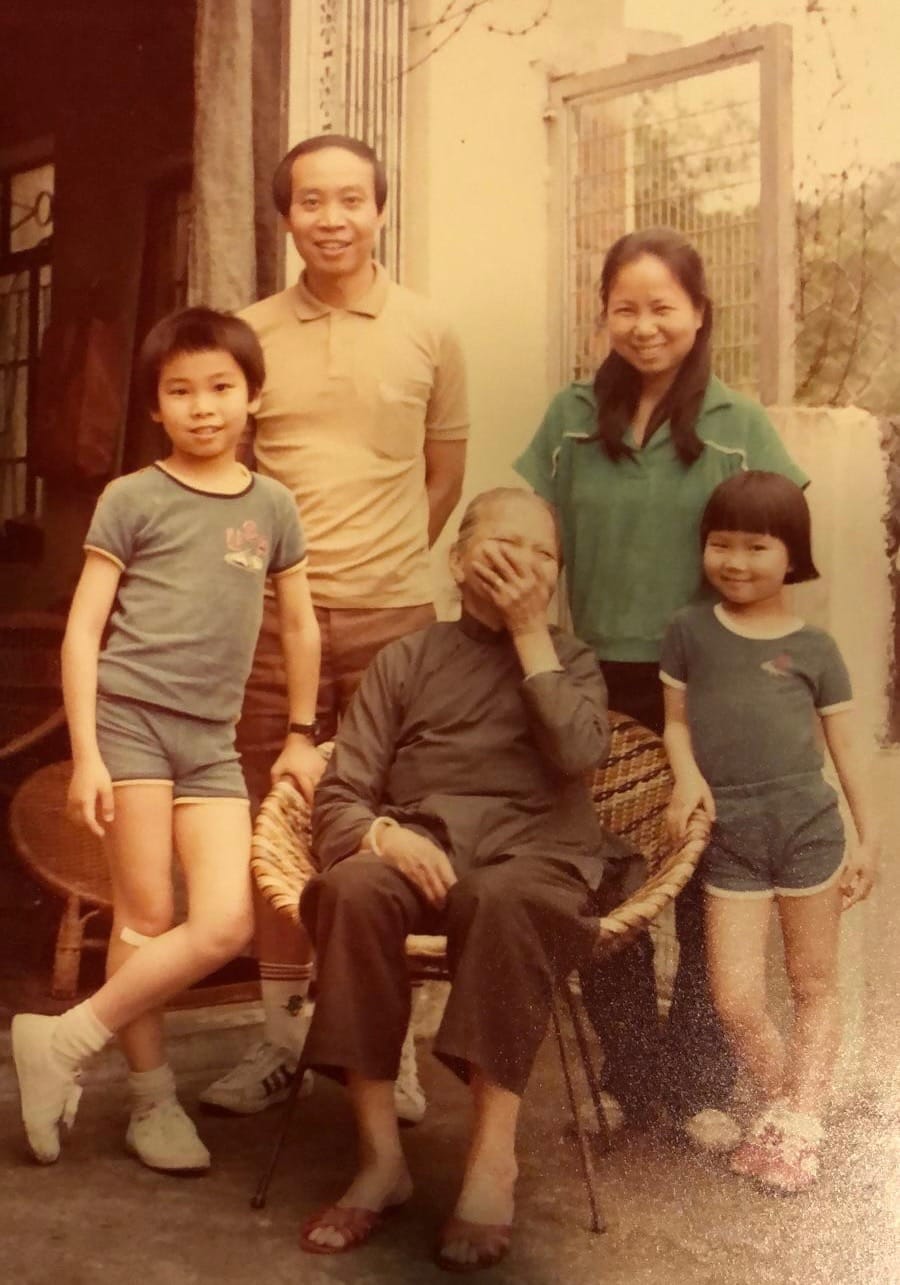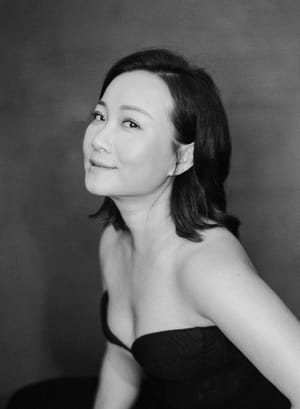I was born and raised in Hong Kong but didn’t grow up in the city. My maternal grandma was a farmer in a country park area called Sai Kung. Her farmhouse was up on a hill, and we lived at the bottom. We would hike up to her house and spend weekends with her and her chickens. I spent most of my childhood in the woods, catching fish, climbing trees, and visiting haunted houses with my brother and cousins in the village. We would miraculously show up during lunch and disappear into the woods again. That was before the iPhone was invented, and our parents had no idea where we were.

Back then, there was no social media for us to compare our lives to others and tell the world how right we were. Nature was our best entertainment. You might not have had as many “friends” back then, but the ones you knew mattered to you. You might not have been able to do as many tasks in a day, but the few you completed were done so mindfully. Most Hong Kongers were not well off back then, and we shared a deep sense of community. We knew we had to support each other to survive.
When I think of the word Ananda, my childhood village life pops up in my mind. I am not saying the world was better than the one we are in now. Not at all. I have been working in the high-tech industry for over 15 years. I enjoy what I do and believe technology has greatly improved the world. As a chemical engineer by training, I am also encouraged by the latest mental health and longevity science.
However, I continue to see how many people suffer because of how we live today, and I have had my own share of ups and downs over the years. Ironically, our natural internal compass to happiness is hindered by man-made innovations — digital devices, social media, and processed food. The phones are connected, but the humans that own them are more disconnected than ever —not only from the community but also from their own hearts. We have acquired more knowledge and accomplishments on external matters, but our internal garden is wilting. Today’s world allows us to easily check all the boxes and fool ourselves into being seen as abundant, but then we struggle more than ever internally.
My vision is for Finding Ananda to be a platform for those who want to explore and discuss one of the most important topics of our generation — how can we find our ananda (happiness) again in today’s world? We will bring you the personal stories of those who seem to have found some partial solutions. We will serve you content that we hope can warm your hearts and souls. As a community, let’s put together a menu of ideas and tools that will enable us to thrive.
What has been your greatest memory of ananda? Tell us in the comments below.
在香港的日子,我虽然在城市出生,却在不寻常的地方度过了童年。
我的外婆是一位西贡乡间的农妇,她的农舍坐落在一座小山上,而我们则住在山脚下。我们常常徒步登山,与外婆一起度过周末,与她的鸡儿们为伴。在那个年代,我在树丛中捕鱼,攀爬树木,与兄弟姐妹一同探险,偶尔还闯入村子里传说中的鬼屋。这是在iPhone问世之前,父母无法通过智能手机知晓我们的所在之处。
那时候,社交媒体还未兴起,无法与他人比较生活,也没有办法告诉世界我们有多正确,于是自然便成为了我们最好的娱乐。或许那时你认识的“朋友”不多,但你所认识的每一个人对你来说都至关重要。虽然一天内完成的任务不多,但每一项任务都是用心完成的。在那个时代,大多数香港人并不富裕,但我们分享着深厚的社区感。我们知道必须互相支持才能生存。
提到“安南达”这个词,我脑海中闪现的是童年乡村的生活,并不是说那个时代比现在更好。因为我在高科技产业工作了15年以上,我喜欢我的工作,认为技术极大地改善了世界。作为一名受过化学工程培训的人,我也对最新的心理健康和长寿科学感到鼓舞。然而,我仍然看到许多人因为我们今天的生活方式而受苦,我自己也经历了多年的起起伏伏。具有讽刺意味的是,我们寻找幸福的内心罗盘受到了人类创新的阻碍——数字设备、社交媒体和加工食品。
手机虽然连接在一起,但拥有它们的人却比以往任何时候都更加疏离,不仅是与社区疏离,还有与他们自己内心的疏离。我们在外部事务上获得了更多的知识和成就,但我们内在的花园正在凋零。今天的世界使我们能够轻松地勾选所有的方框,欺骗自己成为充实的人,但随后我们在内心中的挣扎比以往更加猛烈。
我对“寻找安南达”的愿景是将其打造成一个平台,供那些想要探讨我们这一代最重要话题之一——在今天的世界中,我们如何再次找到自己的幸福?我们将为您呈现那些看似找到了一些部分解决方案的个人故事。我们将为您提供那些希望温暖您心灵的内容。作为一个社区,让我们共同制定一个思想和工具清单,使我们能够茁壮成长。
至于你们对“安南达”的最美好记忆是什么,请在下方评论中告诉我们。



Member discussion